Results
-
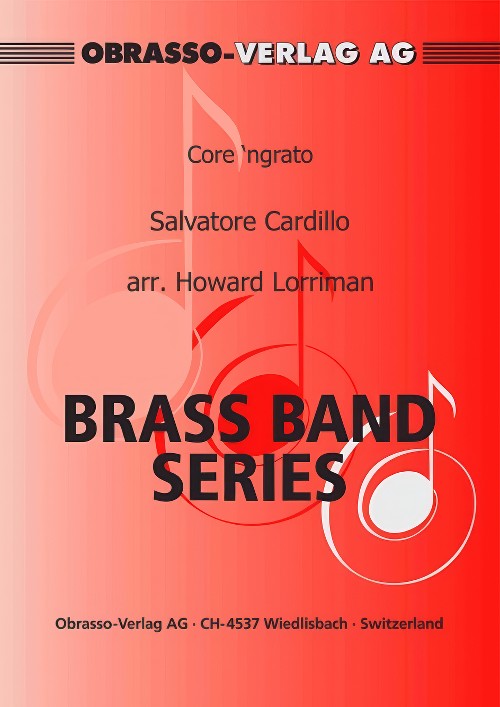 £56.00
£56.00Core 'ngrato (Euphonium Solo with Brass Band - Score and Parts) - Cardillo, Salvatore - Lorriman, Howard
Core 'ngrato, also known by the first words "Catar?, Catar?", is a 1911 Neapolitan song by emigrant American composer Salvatore Cardillo. Here it has been arranged for Euphonium Solo with Brass Band
Estimated dispatch 7-14 working days
-
 £44.95
£44.95Timepiece (Euphonium Duet with Brass Band - Score and Parts) - Bearcroft, Norman
This duet was heavily influenced by the famous euphonium solo, 'Grandfather's Clock' and references to that melody and clock sounds (tick-tock, cuckoo etc.) are plentiful!
Estimated dispatch 7-14 working days
-
 £22.50
£22.50Timepiece (Euphonium Duet with Brass Band - Score only) - Bearcroft, Norman
This duet was heavily influenced by the famous euphonium solo, 'Grandfather's Clock' and references to that melody and clock sounds (tick-tock, cuckoo etc.) are plentiful!
Estimated dispatch 7-14 working days
-
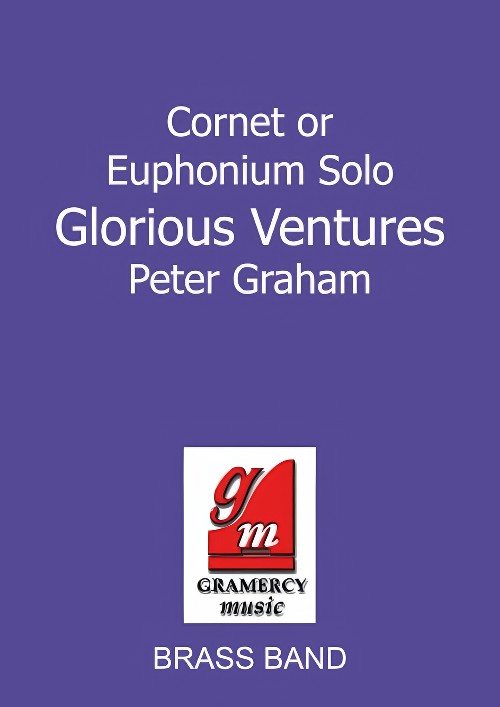 £44.95
£44.95Glorious Ventures (Cornet or Euphonium Solo with Brass Band - Score and Parts) - Graham, Peter
Variations for cornet or euphonium on?Lily of the Valley.?broadcast, recorded by David Daws, Steven Mead, Brian Taylor, Roger Webster among others.
Estimated dispatch 7-14 working days
-
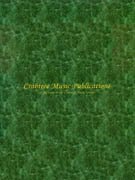 £59.99
£59.99GO THE DISTANCE (Euphonium/Brass Band) - Stowell, David
from Disney's Hercules. Baritone/Euphonium Solo & Brass Band. Duration: 3:00 Grade: Medium
Estimated dispatch 7-14 working days
-
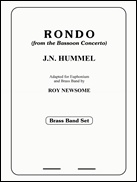 £49.95
£49.95RONDO (from the Bassoon Concerto) (Euphonium/Brass Band) - Hummel, Johann Nepomuk - Newsome, Roy
Euphonium and Brass Band. Duration: 7:45
Estimated dispatch 7-14 working days
-
£54.20
Kalema! (Euphonium Solo)
Kalema is a Euphonium solo, and a portrait of it's dedicatee, Brass for Africa's charismatic and inspirational senior teacher Franke Kalema. He assures me that Kalema means "the heart of a Lion"....A percentage of sales of this piece goes to Brass for Africa.
Estimated dispatch 7-14 working days
-
 £50.90
£50.90Core 'Ngrato (Euphonium Solo with Brass Band - Score and Parts)
Core 'ngrato, also known by the first words "Catar, Catar, is a 1911 Neapolitan song by emigrant American composer Salvatore Cardillo. Here it has been arranged for Euphonium Solo with Brass Band
Estimated dispatch 7-14 working days
-
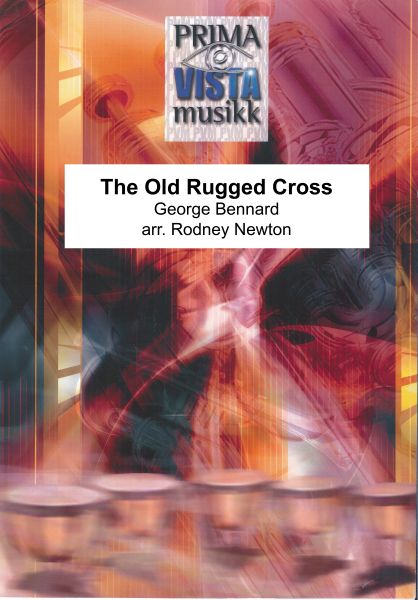 £24.95
£24.95The Old Rugged Cross
This popular hymn tune is here arranged for euphonium solo with brass bandt. A reflective arrangement that should be part of every euphonium player's repertoire.
Estimated dispatch 7-14 working days
-
£10.00
The Old Rugged Cross (Score Only)
This popular hymn tune is here arranged for euphonium solo with brass band accompaniment. A reflective arrangement that should be part of every euphonium player's repertoire.
Estimated dispatch 7-14 working days
